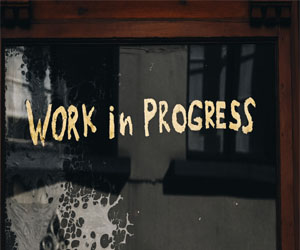


Unlocking Your Full Potential

Self-belief, often referred to as self-confidence or self-esteem, is a fundamental aspect of one's psychological well-being and personal development. It is the unwavering faith and trust in one's own abilities, qualities, and judgment. Self-belief is not merely a positive mindset; it is the cornerstone upon which individuals build their dreams, conquer challenges, and lead fulfilling lives.
The Importance Of Self-Belief
Empowerment: Self-belief empowers individuals to pursue their goals and dreams. It instills a sense of agency and control over one's life, enabling the pursuit of aspirations and ambitions.
Resilience: People with strong self-belief tend to be more resilient in the face of adversity. They view setbacks as temporary and surmountable, using them as stepping stones for growth.
Positive Self-Image: Self-belief contributes to a positive self-image. When individuals believe in themselves, they are more likely to take care of their physical and mental well-being, which, in turn, reinforces their self-esteem.
Risk-Taking: Self-belief encourages calculated risk-taking. It allows individuals to step out of their comfort zones, explore new opportunities, and take on challenges that may have seemed daunting otherwise.
Building Self-Belief
Positive Self-Talk: The way you talk to yourself matters. Replace self-criticism with self-encouragement. Acknowledge your accomplishments and focus on your strengths.
Set Realistic Goals: Start with achievable goals and gradually work your way up. Each successful achievement will boost your self-belief.
Overcome Fear Of Failure: Understand that failure is a part of life. Rather than fearing it, see it as a valuable learning experience. Embrace failures as opportunities for growth.
Learn From Experience: Reflect on your past accomplishments and challenges. Recognize how your self-belief has played a role in your successes.
Surround Yourself With Positivity: Spend time with people who support and uplift you. Negative influences can erode self-belief, so choose your company wisely.
Continuous Learning: Invest in your personal growth and skills. Expanding your knowledge and abilities can boost your confidence.
The Dangers Of Low Self-Belief
Low self-belief can have significant negative consequences. It can lead to self-doubt, anxiety, and a fear of taking risks. This, in turn, can result in missed opportunities and unfulfilled potential. When individuals lack self-belief, they may settle for less than they deserve, both in their personal and professional lives.
The Balance Of Realism
It's important to strike a balance between self-belief and a realistic self-assessment. Overconfidence can lead to poor decision-making, while overly low self-esteem can hinder progress. Healthy self-belief involves acknowledging your abilities and limitations while striving for growth and improvement.
Self-belief is a powerful force that drives personal development and success. It empowers individuals to pursue their goals, navigate challenges, and lead fulfilling lives. By building and nurturing self-belief through positive self-talk, realistic goal-setting, and learning from experience, individuals can unlock their full potential and embrace the opportunities life presents. Remember that self-belief is a journey, not a destination, and with dedication and perseverance, it can be cultivated and strengthened.
Overcoming Fear And Embracing Growth
 Fear Of The Unknown: One of the primary reasons for resisting change is the fear of the unknown. Human beings have a natural tendency to seek comfort and stability. Change disrupts this sense of stability, triggering anxiety about what the future holds. The uncertainty of change can be paralyzing, causing individuals to resist it.
Fear Of The Unknown: One of the primary reasons for resisting change is the fear of the unknown. Human beings have a natural tendency to seek comfort and stability. Change disrupts this sense of stability, triggering anxiety about what the future holds. The uncertainty of change can be paralyzing, causing individuals to resist it.
Comfort In Familiarity: People often become accustomed to their current routines, environments, and relationships. Familiarity provides a sense of comfort and security. Change, even when positive, means stepping into unfamiliar territory, and this can lead to resistance as individuals gravitate towards what they know.
Fear Of Failure: Change often involves taking risks and trying new things. The fear of failure can discourage individuals from embracing change. They may worry that the new path they're embarking on will not be successful or that they lack the necessary skills to adapt to the changes.
Loss Of Control: Change can make people feel like they're losing control over their lives. The loss of control is unsettling, leading to resistance. Individuals may prefer the feeling of being in charge and resist any changes that disrupt their perceived control over their circumstances.
Emotional Attachment: Emotional attachments to people, places, or routines can create resistance to change. Leaving behind what one is emotionally attached to, even if it's no longer beneficial, can be emotionally challenging.








Navigating The Journey Of Self-Discovery
 Define Your Goals: Clearly define your goals. These goals act as destinations on your roadmap. Whether they're related to your career, personal development, relationships, or any other aspect of life, having well-defined objectives will provide you with a sense of purpose and direction.
Define Your Goals: Clearly define your goals. These goals act as destinations on your roadmap. Whether they're related to your career, personal development, relationships, or any other aspect of life, having well-defined objectives will provide you with a sense of purpose and direction.
Set A Plan: A roadmap is only effective when it comes with a plan. Break down your goals into actionable steps. Consider what skills, knowledge, or resources you need to acquire. Creating a strategic plan will ensure you stay on track.
Lifelong Learning: To reach your potential, you must embrace lifelong learning. Seek knowledge, acquire new skills, and stay curious. Engage in reading, attend workshops, take courses, and surround yourself with individuals who inspire you to grow.
Resilience: Challenges are inevitable on your journey to potential. Resilience is your ability to bounce back from setbacks. Accept that you might encounter obstacles and setbacks, but also recognize that they are opportunities to learn and grow.
Consistent Action: Potential isn't unlocked by intention alone; it requires consistent action. Make a habit of taking small, purposeful steps toward your goals every day. Consistency leads to progress.
Positive Mindset: A positive mindset is your driving force. Focus on solutions, cultivate optimism, and maintain a "can-do" attitude. This mindset not only fuels your confidence but also attracts opportunities and positive outcomes.
 Optimism And Resilience: A positive mindset allows you to approach relationships with optimism and resilience. Instead of dwelling on past conflicts or failures, you focus on the potential for growth and understanding. This resilience helps you bounce back from disagreements and setbacks, making your relationships more robust.
Optimism And Resilience: A positive mindset allows you to approach relationships with optimism and resilience. Instead of dwelling on past conflicts or failures, you focus on the potential for growth and understanding. This resilience helps you bounce back from disagreements and setbacks, making your relationships more robust.
Effective Communication: Positive-minded individuals tend to be better communicators. They are more inclined to listen actively, express themselves clearly, and avoid misunderstandings. Effective communication is crucial for building and maintaining healthy relationships.
Conflict Resolution: Conflict is a natural part of any relationship, but a positive mindset can help resolve conflicts in a more constructive way. Instead of resorting to blame or defensiveness, you are more likely to seek compromise and mutually beneficial solutions.
Empathy And Compassion: A positive mindset encourages empathy and compassion. You are more capable of putting yourself in another person's shoes, understanding their perspective, and responding with kindness and compassion. This fosters trust and deepens your connections.
Healthy Boundaries: Cultivating a positive mindset also involves setting and respecting healthy boundaries. By doing so, you ensure that your needs are met and that you maintain a sense of balance in your relationships. Healthy boundaries are essential for long-term relationship satisfaction.
Unlocking Your Full Potential
 Overcoming Limiting Beliefs: One of the most significant barriers to personal growth is the presence of limiting beliefs. These beliefs are self-imposed restrictions that often result from a fixed mindset. Through mindset transformation, you can identify and challenge these beliefs, replacing them with empowering and constructive ones.
Overcoming Limiting Beliefs: One of the most significant barriers to personal growth is the presence of limiting beliefs. These beliefs are self-imposed restrictions that often result from a fixed mindset. Through mindset transformation, you can identify and challenge these beliefs, replacing them with empowering and constructive ones.
Resilience And Adaptability: Mindset transformation fosters resilience and adaptability. It equips you to bounce back from setbacks, view failures as learning experiences, and adapt to change more effectively. This newfound resilience allows you to tackle challenges with confidence.
Confidence And Self-Esteem: As your mindset shifts, your confidence and self-esteem grow. You begin to believe in your abilities, which, in turn, empowers you to take on new opportunities and challenges. A positive mindset transformation can significantly boost your self-worth.
Goal Setting And Achievement: A transformed mindset enables you to set ambitious, achievable goals and work diligently towards them. You stop being deterred by the fear of failure and instead focus on the process of learning and growth.
Optimism And Positivity: Empowerment through mindset transformation brings with it a more positive outlook on life. You start to see setbacks as stepping stones to success, focusing on solutions rather than problems. This newfound optimism attracts positive people and circumstances into your life.
Mindfulness And Self-Awareness: Transformation of your mindset often involves heightened mindfulness and self-awareness. You become more attuned to your thoughts and emotions, allowing you to make better choices and respond thoughtfully to situations.
 Understanding Mindset Mastery: At its core, mindset mastery is about gaining control over your thought processes and beliefs. It involves recognizing and challenging limiting beliefs, embracing a positive perspective, and adopting a growth-oriented mindset.
Understanding Mindset Mastery: At its core, mindset mastery is about gaining control over your thought processes and beliefs. It involves recognizing and challenging limiting beliefs, embracing a positive perspective, and adopting a growth-oriented mindset.
Overcoming Limiting Beliefs: The first step in mastering your mindset is identifying and dismantling limiting beliefs. These self-imposed barriers often hinder personal growth. By acknowledging and challenging these beliefs, you clear the path to fulfillment.
A Positive Perspective: A mindset geared toward personal fulfillment is inherently positive. Instead of dwelling on problems, it focuses on solutions. This positive perspective empowers you to view challenges as opportunities for growth and to maintain an optimistic outlook.
Resilience And Adaptability: Mindset mastery equips you with the resilience to bounce back from setbacks. Personal fulfillment is not devoid of obstacles, but a strong mindset helps you overcome them with grace and determination.